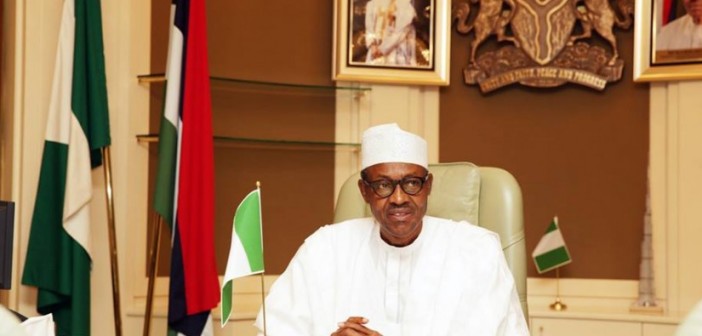I write to you because I am concerned about the state of micro-entrepreneurs and low income earners in Nigeria. I am empowered to write you on the strength of paragraph 50 of your 2016 Budget Statement as presented on 22 December 2015 to the joint sitting of the National Assembly, which reads “We will welcome and be responsive to your feedback and criticisms”
Your Excellency Sir, to go straight to the point, the circular released on 15 January 2016 by the Central Bank of Nigeria (CBN) directing all banks and financial institutions to commence the charging of N50 on banking instrument transactions from N1,000 and above, is unfriendly and insensitive to the growing army of Nigeria’s micro-entrepreneurs, low income earners and the unemployed otherwise referred to as the poor.
Mr President, while I support the initiative as part of recent efforts by your administration to boost non-oil revenue, there are reasons to believe that the policy could have been better thought-through in terms of its impact on the struggling poor. And that is the main thrust of this write-up.
A responsive government should not be in the business of instituting internally generated revenue mechanism that tightens its grip on micro-businesses and the poor. If this policy step was informed by the suggestion of the International Monetary Fund (IMF) that the government takes steps to improve its public finances by increasing tax compliance and blocking leakages, you may also recall that the same IMF recommended for example that you prioritize better, more efficient corporate tax collection for the multinationals and high-end earners. I have wondered why your administration decided starting with economic measures that will drive the last nails into the coffin of a suffering lot.
Your party, All Progressives Congress (APC) manifesto highlights accelerated economic growth as one of its 7 cardinal programmes. This policy may be well intended however the reality and unintended consequences is that this policy is going to put structural obstacles and challenges in the way of the very people that need to be lifted out of poverty or prevent them dropping into poverty trap. For those who live from minute by minute funds, this is unaffordable tax. In addition implementation on the ground always takes on a different format because of Nigeria’s many weak institutions and poorly trained staff.
I note with limited relief that transactions on savings accounts are exempt from the N50 charges. Limited relief because while the exemption makes sense, it does not go far enough. It seems to suggest that if you are someone of a small financial means, current account should be out of your reach. Such mindset contradicts the whole cashless society campaign that the country has undertaken over recent years and with huge success too! I worry that with the N50 charges, those on the lower ebb of the earning ladder would revert to the old way of keeping physical cash under their mattresses. I do not intend to reproduce here the benefits to micro-businesses of a cashless society but suffice to highlight the added security and efficiency that it provides the consumer and how vulnerable they shall be rendered (once again!) in its absence. Pickpocketing and highway robbery are but two examples of the old order that may make a comeback.
Your Excellency Sir, there is also the issue of the newly introduced current account maintenance charges (a directive from the CBN to all commercial banks), to deduct N1 from EVERY N1000! transaction. This policy will significantly affect the low paid who draw monies from their current account in low figures because that is all they can afford. Policies like this will make people keep more cash at home, a move that could increase armed robbery across the nation as robbers will believe more cash will be available in the homes.Government itself is at the losing end too. A time when efforts should be intensified to create a robust formal economy is the worse time in Nigeria’s developmental trajectory to discourage some segments of consumers from fully having all transactions pass through electronic payment systems or the financial institutions. Cash payments actually give a boost to the informal economy and this is exactly one of the unanticipated fallouts of the N50 tax. And I am sure that is not what you want.
In analyzing the impact of the fallen commodity prices as preface to your 2016 budget presentation, you lamented rightfully as follows “This huge decline is having a painful effect on our economy. Consumption has declined at all levels…..The small business owners and traders have been particularly hard hit by this state of affairs” You could not have said it better, Mr President. I cannot find any justification for the same group of people, who have been particularly hit, to be hit again by their president through the N50 tax. I guess the rule here should be that you don’t hit a man who is already down or as someone here will say, you can’t naked a naked man especially when you did promise, Mr President that you will “as a matter of urgency, address the immediate problems of … the terrible living conditions of the extremely poor and vulnerable Nigerians”
Permit me the luxury of proposing a mutually beneficial banking transaction charge for micro-entrepreneurs and low income earners. Before delving into the nitty gritty of the proposal, I should submit I am not reinventing the wheel. The proposal is based on your plan to create “proper linkage of budgeting to strategic planning” by enhancing the utilization of the Government Integrated Financial Management Information Systems (GIFMIS) to improve financial management. It also attempts to take into accounts all of the draw-backs I have highlighted above, turning them from threats to opportunities, both for the consumer and for government. The fact that the recently established Efficiency Unit is working across Ministries, Departments and Agencies (MDAs) to identify and eliminate wasteful spending, duplication and other inefficiencies already provides a good cushion to shore up the proposal.Here it is!
- All consumers are charged the flat rate of N50 as originally proposed. Or better still the threshold for charging is raised to a higher level. Banks should also be obliged to “know your customer” and are expected to ensure abuse is mitigated. If this is done then the suggestions below will not be necessary.
- The paid charges to Deposit Money Banks (DMBs) and financial institutions are held in an account which could be designated as Transactions Charges Suspense Account, similar to the NIPOST Stamp Duties Account as initially conceived.
- The difference however is that rather than transfer monthly the collected duties those collected from the eligible consumers are held back at the DMBs. Eligibility criteria will obviously be established beforehand and may include individuals on minimum wage, unemployed, micro-entrepreneurs with turn-over not exceeding an amount to be determined in line with existing norms, et cetera
- At the end of the financial year, an eligibility form is completed by the consumer. Once ascertained and approved, the money is refunded. At the same time, I am confident that the newly established Efficiency Unit will take on policy impact evaluation and assessment as a standard practice rather than the exception that it currently is in Nigeria.
Among other advantages, this system allows for some sort of compulsory savings which motivates the consumer to be involved in the scheme, taking away the real fear of inadvertently losing the gainsso far made in the cashless campaign.This can also form part of the stage in systematically building a formal economy. The micro-entrepreneur of today may become the multinational business leader of tomorrow
*With inputs from Titi Banjoko and Jide Iyaniwura. Collins, Titi and Jide are members of the London-based think-tank, Nigerian Leadership Forum




